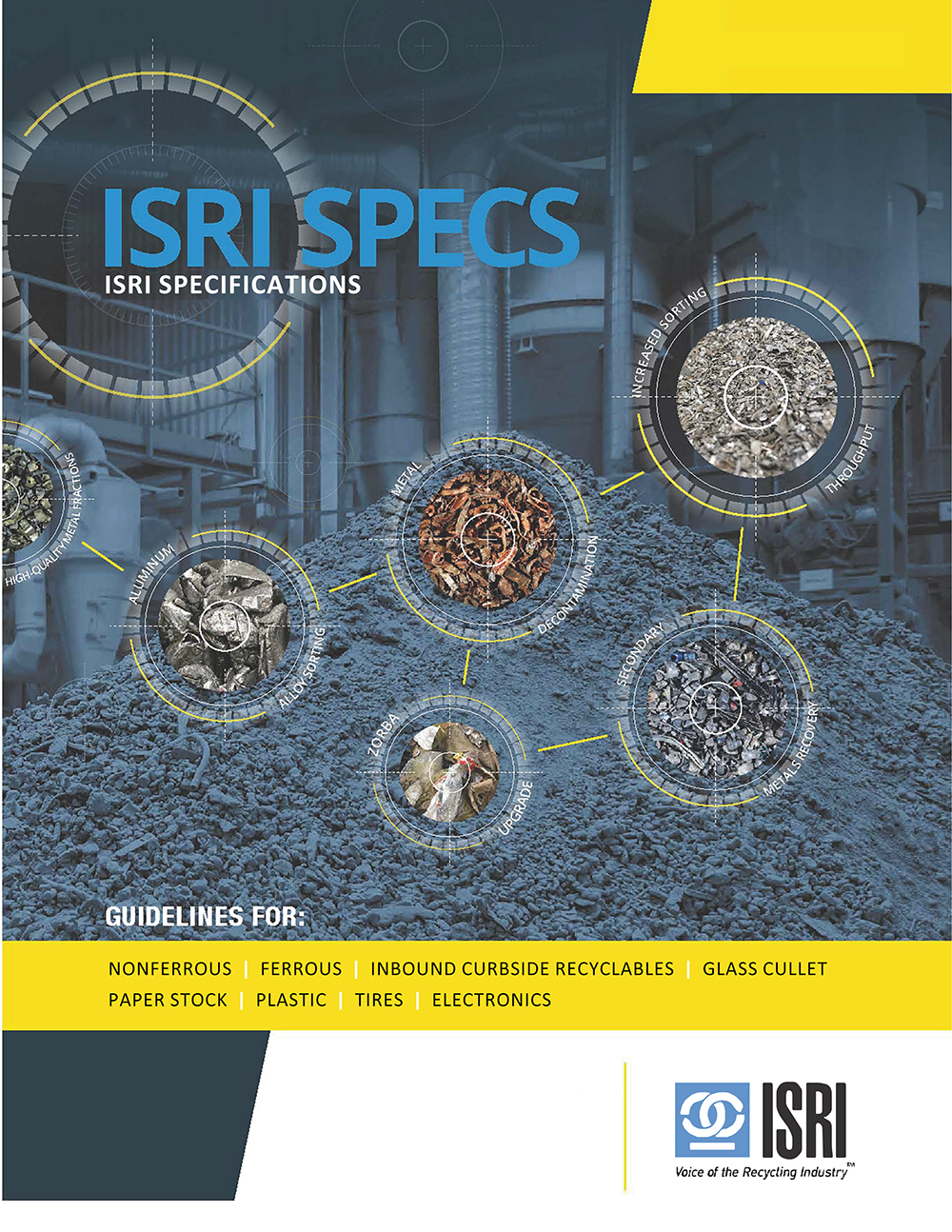Description: Any injection grade high density polyethylene (#2 HDPE) rigid plastic, typically found to be wide mouthed containers and/or oversized items generated through a positive sort from curbside, drop-off or other public or private recycling collection program. Examples include carts, crates, buckets, baskets, or other large all injection HDPE items. Small injection molded containers are acceptable. Pallets or other injection molded large items from commercial sources can be included. Metal such as axels and bolts must be removed. Buckets/pails with metal handles and all HDPE plastic toys without metal rods or screws are acceptable.
Blow molded containers of any size should not be included (e.g., 55-gallon drums or 2 gl syrup containers).
Product: Buckets, Pails, Oversized Rigid Plastics
Source: Post-Consumer Material collected primarily from residential sources, may also include some material that has met its intended use from commercial establishments.
Contamination: Total contamination should not exceed 5% by weight. ALLOWABLE CONTAMINANTS AT LOW LEVELS: These contaminants are tolerable at low levels. The following contaminants should not exceed 2% by weight of any of the following “individual” contaminants, unless noted otherwise.
- Polypropylene rigid plastic (5% maximum)
- Any other non-HDPE rigid plastic, including PET (#1), PVC (#3), LDPE (#4), PS (#6), Other (#7) and compostable plastic (e.g., PLA and PHA) (4% maximum of all combined)
- Liquid or other residues
- Loose paper or cardboard (OCC)
- Aluminum cans
CONTAMINANTS NOT ALLOWED: If present, these contaminants may result in rejection.
- Any item with degradable additives
- Containers which held hazardous materials, such as flammable, corrosive, or reactive products, pesticides, or herbicide
- Any plastic bags or film
- Any plastic foam
- Other metal, wood, glass
- Batteries
- Electronics scrap, including items with circuit boards or battery packs
- Bio-Medical waste/items (e.g., syringes, sharps, gloves, masks)
Rocks, stones, mud, oils, grease
General: Refer to the General Information section for additional information.
Effective as of: July 14th, 2022
Terms & Conditions
Product These guidelines are designed with the potential for dealing with all recycled plastic in bale form. Initial specifications refer only to bottles. The code framework allows for generation of guidelines for all types of plastic packaging materials (including rigids and flexibles) with room for expansion to other plastic products and resins including those which are used to produce durable goods. Guidelines for those products may be added at a later date. Bale Density Bales shall be compressed to a minimum density of 10 pounds per cubic foot and a maximum density to be determined by individual contract between Buyer and Seller. Increased density may improve transportation efficiency, but over-compression may adversely affect the ability of a Buyer to separate, sort, and reprocess the material. Bale Tying Material Bale wires, ties, or straps shall be made of non-rusting or corroding material. Bale Integrity Bale integrity must be maintained through loading, shipping, handling, and storage. Distorted or broken bales are difficult to handle. They are unacceptable and may result in downgrading, rejection, or charge back. Allowable Contamination Unspecified materials must not exceed 2% of total bale weight. Bales which contain over 2% will be subjected to reduction in the contracted price of the material as well as charges for disposal of the contaminants. The reduced percentage will vary depending upon the amount and type of contamination. Quality of the baled plastic is the primary factor which determines the value. Prohibited Material Certain materials are understood to be specified as “prohibited.” Such materials will render the bale “non-specification” and may cause some customers to reject the entire shipment. These may include plastic materials which have a deleterious effect on each other when reprocessed, and materials such as agricultural chemicals, hazardous materials, flammable liquids and/or their containers, and medical waste. Liquids Plastic containers/materials should be empty and dry when baled. The bale should be free of any free-flowing liquid of any type. General Shipments should be essentially free of dirt, mud, stones, grease, glass, and paper. The plastic must not have been damaged by ultraviolet exposure. Every effort should be made to store the material above ground and under cover. A good faith effort on the part of the supplier will be made to include only rinsed bottles which have closures removed.
RELATED SPECS
Flexible PVC
Item Code: Flexible PVC
Description: Typically consists of molding, weather strip- ping, flexible tubing, p...
PP Small Rigid Plastic
Item Code: PP Small Rigid Plastic
Any polypropylene (PP) containers, packaging or products with the ASTM D7611 “#5, PP” resin iden...
Mixed Small Rigid Plastic
Item Code: Mixed Small Rigid Plastic
Small rigid plastic items that are a mix of resins and generated in a positive sort...
Mixed Bulky Rigid Plastic
Item Code: Mixed Bulky Rigid Plastic
Any large rigid polypropylene (PP) high-density polyethylene (PE) and/or Low-Density Polyethylene (L...
PET Bottles With Thermoforms
Item Code: PET Bottles With Thermoforms
Description: Any whole Polyethylene Terephthalate (PET, #1) postconsumer bottle or ...
